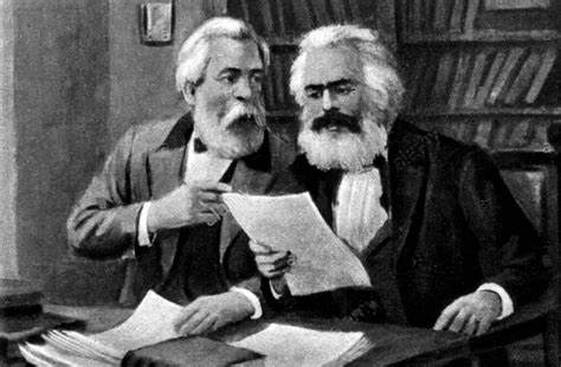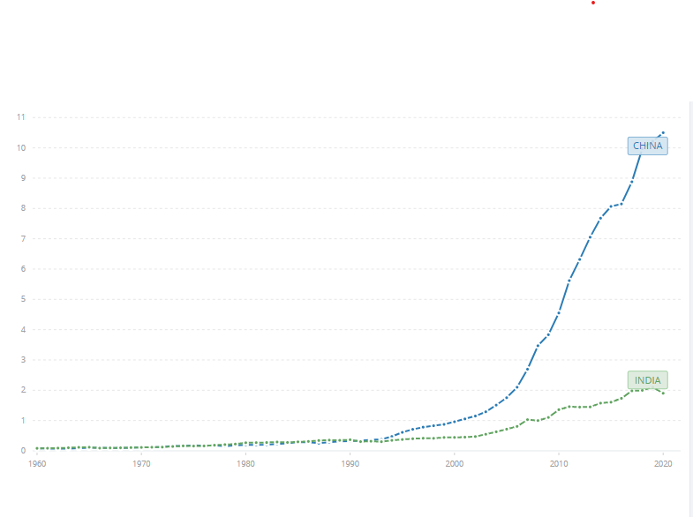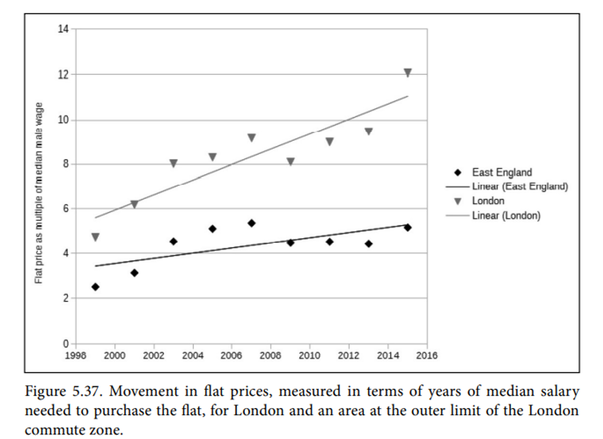|
In the Manifesto of the Communist Party the authors raised a list of 10 immediate objectives, the very first of which read’s: ‘1. Abolition of property in land and application of all rents of land to public purposes.’ So the communists aimed to get rid of landed property, but what did they propose to replace it with? They wanted land nationalisation. The state would own all land and insofar as land was cultivated by entities that were not state farms, these would pay rent to the state for its use. Marx was quite adamant that it was not in the interest of the working class to allow land to pass into the ownership of rural associations. In his article The Nationalisation of Land [The International Herald No. 11, June 15, 1872;] he wrote: To nationalise the land, in order to let it out in small plots to individuals or working men's societies, would, under a middle-class government, only engender a reckless competition among themselves and thus result in a progressive increase of "Rent" which, in its turn, would afford new facilities to the appropriators of feeding upon the producers. "Small private property in land is doomed by the verdict of science, large land property by that of justice. There remains then but one alternative. The soil must become the property of rural associations or the property of the whole nation. The future will decide that question." I say on the contrary; the social movement will lead to this decision that the land can but be owned by the nation itself. To give up the soil to the hands of associated rural labourers, would be to surrender society to one exclusive class of producers Marx in this article argued against a system of small peasant proprietorship, arguing that the experience of France indicated that it led to the gradual subdivision of land into smaller and smaller family plots and that these small farms could not sustain the large scale mechanised agriculture needed to adequately feed a large working class. Why did Marx demand the allocation of rent to public purposes as part of the Nationalisation of land. Lenin explains this : Nationalisation of the land under capitalist relations is neither more nor less than the transfer of rent to the state. What is rent in capitalist society? It is not income from the land in general. It is that part of surplus value which re— mains after average profit on capital is deducted. Hence, rent presupposes wage-labour in agriculture, the transformation of the cultivator into a capitalist farmer, into an entrepreneur. Nationalisation (in its pure form) assumes that the state receives rent from the agricultural entrepreneur who pays wages to wage-workers and receives average profit on his capital—average for all enterprises, agricultural and non-agricultural, in the given country or group of countries. The aim therefore is to ensure that the portion of surplus, that must under relations of commodity production take the form of rent, is centrally appropriated and used for the development of the nation as a whole. The effectiveness of this policy is clearly born out by the comparative histories of China and India after independence. In China land was nationalised. The private appropriation of rent by a parasitic landlord class came to an end. In India that class survived, and continued to appropriate a large part of the surplus product. Without the drain imposed by landlords, China was able to develop rapidly, raise life expectancy and become the largest economy in the world. China/India GDP per capita current US$ , (World Bank) In addition to agricultural rent, capitalist society generates rent for minerals and urban land. The owners of land under which oil lies are able to extort a huge rent revenue. This revenue arises from the difference between the labour time necessary to produce oil on the most marginal reserves - those that for example require extensive fracking or those offshore in deep water - and the labour time necessary to produce oil on easily exploited reserves like those in Saudi Arabia. Similarly for urban land the rental that can be obtained relates to the differential labour costs of getting to work. A house 20 miles from the main employment center will command less rent than the same sized house 10 miles away. Workers must give up time and money to travel to work. Any saving they can make by living closer to work tends to end up in the hands of landlords who can charge more for a house close in to a great metropolis. It is evident, if the two houses are the same size and quality, that the premium in the second case is due to the land on which the house rests. Owner occupiers do not escape this. The price of property in a capitalist market is set by the price landlords are willing to bid to buy houses and flats as rental investment. A landlord will be willing to buy a house if the expected rent revenue is less than the interest he would pay on a bank loan used to purchase it. As cities expand, areas which were once marginal suburbs become embedded within the metropolis. Houses in them which originally commanded low rents are now let for high rents. This reacts back on property prices as illustrated from the following figure from my book How The World Works So landowners not only gain from increased rent, but make additional profits from the appreciation of property prices. Such speculative unearned income becomes a major driving force for the upper classes. I understand that slogans about ‘land back’ have started to be advanced in the USA, with the reference ‘back’ referring to the descendants of the indigenous or aboriginal peoples of the United States. Consider some possible interpretations of this.
These are the typical scenarios that would play out in the USA. In all of which the effect is to transform the indigenous group into collective exploiters of one or more sections of the rest of the population. That is because the mass of the direct producers in the USA are not from the indigenous population. Under these circumstances where they to acquire ownership of all land they would inevitably become and exploiting minority. The situation is quite different in some Southern American countries where a class of landowners of European descent has historically exploited a peasantry of indigenous descent. In that case the indigenous comprise the majority of the direct producers and the transfer of private land to regional governments elected mainly by the indigenous farmers would correspond to the programme of land Nationalisation advocated by Marx. AuthorPaul Cockshott is an economist and computer scientist. His best known books on economics are Towards a New Socialism, and How The World Works. In computing he has worked on cellular automata machines, database machines, video encoding and 3D TV. In economics he works on Marxist value theory and the theory of socialist economy. Archives October 2021
0 Comments
Leave a Reply. |
Details
Archives
July 2024
Categories
All
|



 RSS Feed
RSS Feed